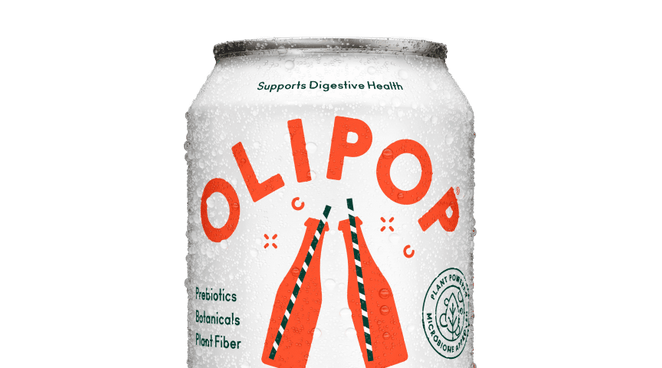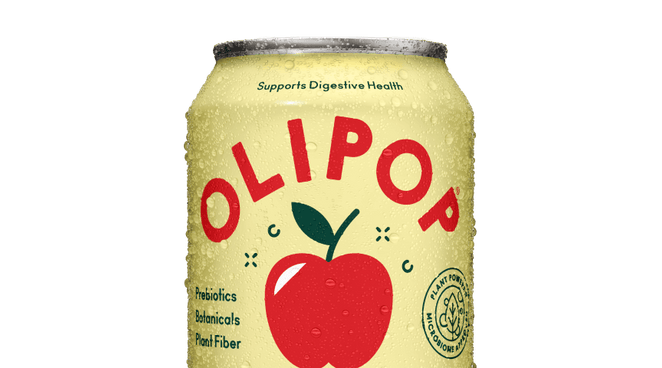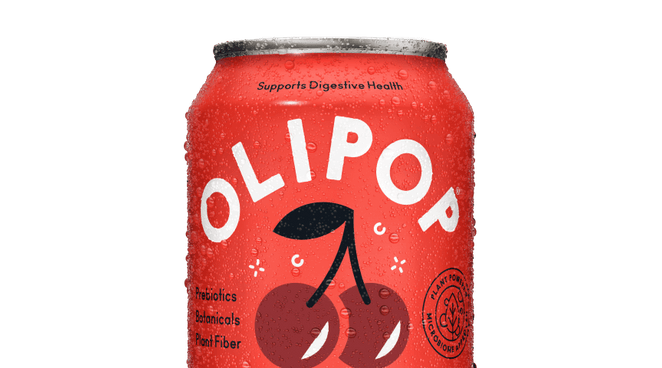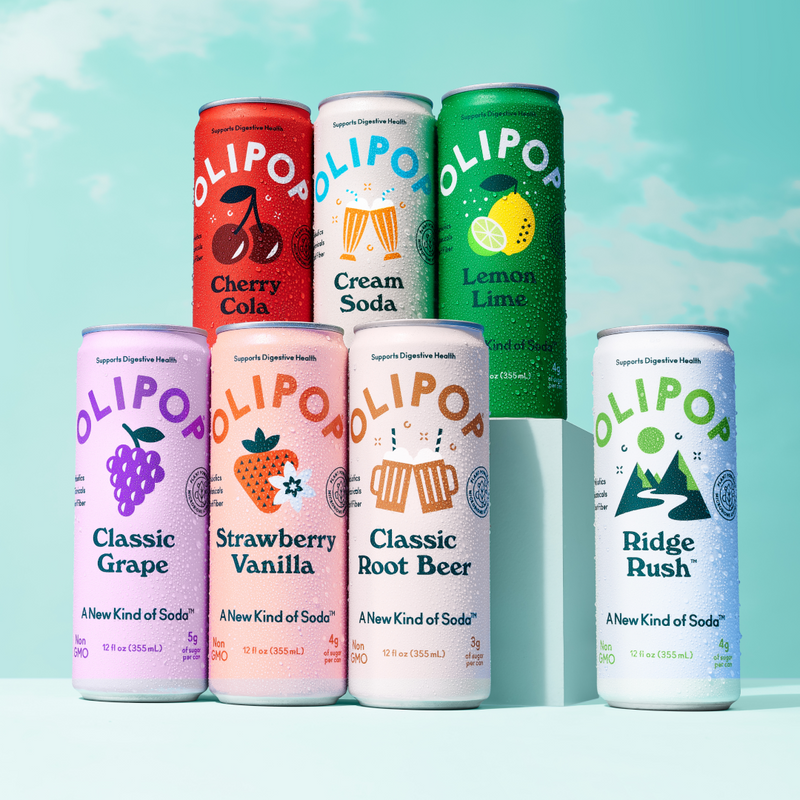Editor's Note: This article is reviewed by Lauren Manaker MS, RDN, LD, a registered dietitian and a paid contributor to OLIPOP. She specializes in digestive health and reviews OLIPOP content for scientific accuracy.
As a species, it’s safe to say that, as humans, we have a “sweet tooth”. Sugar has long held a complex and controversial position in our diets and cultural conversations. The vast majority of cultures across the globe indulge in one form of a sweet treat or another. From breaded confections to sugary beverages, sugar is deeply embedded in the culinary landscape.
Yet, there is a growing awareness of the potential health risks associated with excessive sugar consumption. To truly understand the impact of sugar on our bodies, we’ll delve into its two distinct categories: refined sugar and natural sugar. In this article, we’ll explore the differences, health implications, and common culinary applications of these sweet substances.
Refined vs. Natural Sugar
Refined sugar and natural sugar differ significantly from each other. Refined sugar, like white sugar, undergoes an extensive refinement process that strips away impurities and isolates sucrose. Sucrose, a disaccharide composed of glucose and fructose molecules, is the predominant component of refined sugar.
By contrast, natural sugar encompasses a broader range of sugars found in whole foods. Fructose, found in fruits, and lactose, found in dairy products, are examples of natural sugars. Natural sweeteners like honey, maple syrup, and molasses contain varying amounts of sucrose, fructose, and other natural sugars.
What is Refined Sugar?
Refined sugar, also known as white sugar, table sugar, or processed sugar, comes primarily from sugar cane or sugar beets. It requires a multi-step refining process that involves crushing the plant material, extracting the juice, and subjecting it to clarification and evaporation to remove impurities and extract sucrose. The final result is a fine-textured, crystalline substance with a high level of sweetness.
Is Refined Sugar Bad for You?
Refined sugar has been widely criticized for its detrimental effects on human health. The high glycemic index of refined sugar means that it’s quickly digested and absorbed, potentially leading to rapid spikes in blood sugar levels. This sudden surge in glucose can put a strain on the body's insulin response, potentially contributing to weight gain, diabetes, and cardiovascular problems.
Also, refined sugar lacks essential nutrients and may contribute to nutrient deficiencies when consumed in excess. Eating large quantities of refined sugar could also increase your risk of dental cavities due to the proliferation of harmful oral bacteria.
Refined Sugar Foods
Refined sugar is most commonly used to enhance flavors, extend shelf life, and create a desirable texture. Its ability to caramelize and aid in browning makes it an appealing choice for commercial food production.
Here are a few common sources of refined sugar:
-
Candy
-
Breakfast cereals
-
Most soft drinks (but not OLIPOP!)
-
Cookies
-
Cakes
-
Pastries
What is Natural Sugar?
Natural sugar encompasses a wide range of sugars found in whole, unprocessed foods. It includes:
-
Fructose, a monosaccharide found in fruits
-
Lactose, a disaccharide present in dairy products
-
And small amounts of sucrose in natural sweeteners like honey, maple syrup, and molasses
In natural, unprocessed food and beverages, these natural sugars occur alongside fiber, vitamins, minerals, and other beneficial compounds that can help contribute to improved general health.
Is Natural Sugar Bad for You?
Natural sugar, when consumed in moderation and as part of a balanced diet, can be a valuable source of energy and nutrients. Fruits, while being a natural sugar source in many cases, offer a host of vitamins, antioxidants, and dietary fiber that aid digestion and promote overall well-being. The presence of fiber in fruits helps to slow down the absorption of sugar into the bloodstream, mitigating the impact on blood sugar levels.
Despite this, it’s important to be mindful of portion sizes and the overall sugar content of these natural sugar sources, especially for those with certain health conditions like diabetes. Lactose in dairy products can also be problematic for those with lactose intolerance. But for those who can consume dairy milk, this beverage provides valuable nutrients, like calcium and vitamin D.
Natural Sugar Foods
The complex taste profile and nutritional benefits of natural sweeteners can elevate food and beverages, imparting a more nuanced sweetness that enhances the overall flavor experience. OLIPOP’s wide range of delicious flavors uses sugar from reliable sources like cassava root syrup and real fruit juice.
Here are a few common sources of natural sugar:
-
Fruit
-
Vegetables
-
Dairy
-
Honey
-
Maple syrup
-
Molasses
-
Grains
-
And OLIPOP is made with sources of natural sugar too!
Good vs. Bad Sugar: Is All Sugar the Same?
Refined sugar and natural sugar are both sugars that help enhance the flavor of your foods. But they diverge significantly when it comes to their processing. Refined sugar, with its potential to disrupt blood sugar levels and lack of essential nutrients, warrants moderation and caution in consumption. As an “added sugar”, refined sugar only increases how unhealthy a food or beverage might be as you add more to it. Natural sugar, on the other hand, presents a more holistic option. That's because it offers extra nutritional benefits and a closer connection to whole foods.
As you navigate the sweet divide, it’s essential to cultivate awareness about sugar intake, read food labels attentively, and adopt a balanced approach to your diet. By making informed choices, you can savor the pleasures of sweetness while safeguarding your health and well-being at the same time.
- Refined sugar, also known as white sugar or processed sugar, comes primarily from sugar cane or sugar beets. It requires a multi-step refining process.
- Natural sugar encompasses a wide range of sugars found in whole, unprocessed foods such as fructose in fruit and lactose in milk.
- Consumption of refined sugar is linked to health risks like weight gain and diabetes, while natural sugar offers additional nutrients and benefits when consumed in moderation.
- Making informed choices and practicing mindfulness is crucial for enjoying the pleasures of sweetness while maintaining a healthy diet.















